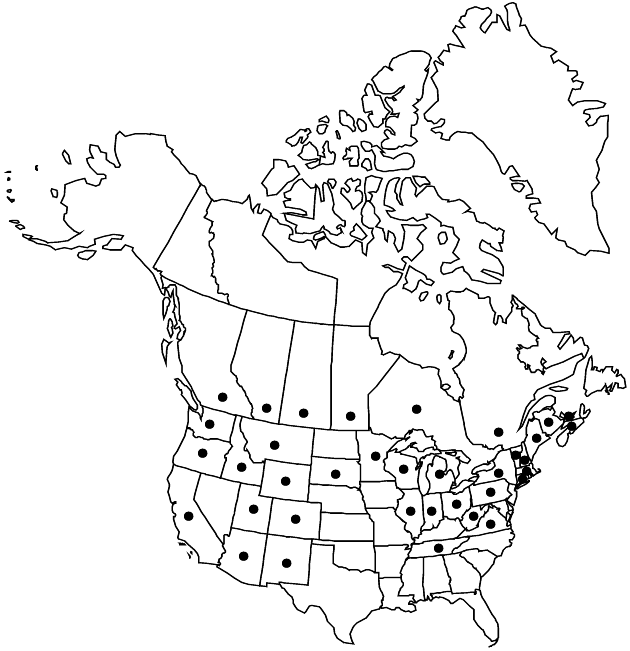Difference between revisions of "Pseudognaphalium macounii"
in J. T. Kartesz and C. A. Meacham, Synth. N. Amer. Fl., nomencl. innov. 30. 1999.
FNA>Volume Importer |
imported>Volume Importer |
||
| Line 59: | Line 59: | ||
|publication year=1999 | |publication year=1999 | ||
|special status= | |special status= | ||
| − | |source xml=https:// | + | |source xml=https://bibilujan@bitbucket.org/aafc-mbb/fna-data-curation.git/src/bb6b7e3a7de7d3b7888a1ad48c7fd8f5c722d8d6/coarse_grained_fna_xml/V19-20-21/V19_690.xml |
|tribe=Asteraceae tribe Gnaphalieae | |tribe=Asteraceae tribe Gnaphalieae | ||
|genus=Pseudognaphalium | |genus=Pseudognaphalium | ||
Revision as of 20:39, 27 May 2020
Annuals or biennials (often sweetly fragrant), 40–90 cm; taprooted. Stems stipitate-glandular throughout (usually persistently lightly white-tomentose distally). Leaf blades (not crowded, internodes mostly 5+ mm) lanceolate to oblanceolate, 3–10 cm × 3–13 mm (distal linear), bases not clasping, decurrent 5–10 mm, margins flat to slightly revolute, faces weakly bicolor, abaxial tomentose, adaxial stipitate-glandular, otherwise glabrescent or glabrous. Heads in corymbiform arrays. Involucres campanulo-subglobose, 4.5–5.5 mm. Phyllaries in 4–5 series, stramineous to creamy (hyaline, shiny), ovate to ovate-oblong, glabrous. Pistillate florets 47–101(–156). Bisexual florets 5–12[–21]. Cypselae not ridged, ± papillate-roughened.
Phenology: Flowering July–Oct.
Habitat: Dry, open habitats, pastures, open woods or edges, roadsides
Elevation: 50–2600(–3000) m
Distribution

Alta., B.C., Man., N.B., N.S., Ont., P.E.I., Que., Sask., Ariz., Calif., Colo., Conn., Idaho, Ill., Ind., Maine, Mass., Mich., Minn., Mont., N.H., N.Mex., N.Y., Ohio, Oreg., Pa., S.Dak., Tenn., Utah, Vt., Va., Wash., W.Va., Wis., Wyo., Mexico.
Discussion
Pseudognaphalium macounii is recognized by its stipitate-glandular, proximally glabrescent stems, bicolor and decurrent leaves, relatively large and many-flowered heads, and hyaline, shiny phyllaries. Reports of P. macounii from Texas are based on specimens of P. viscosum.
Selected References
None.